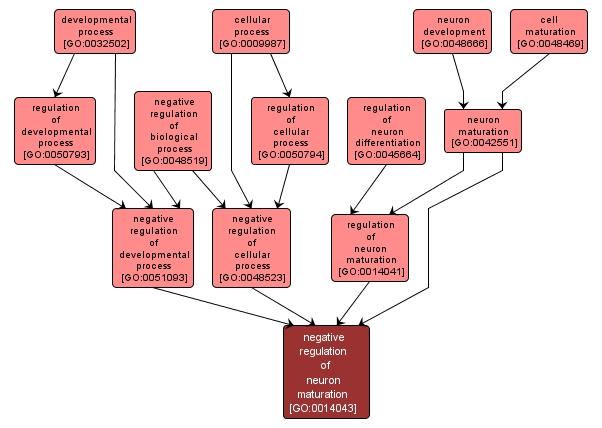GO TERM SUMMARY
|
| Name: |
negative regulation of neuron maturation |
| Acc: |
GO:0014043 |
| Aspect: |
Biological Process |
| Desc: |
Any process that stops, prevents or reduces the frequency, rate or extent of neuron maturation. |
Synonyms:
- inhibition of neuron maturation
- down regulation of neuron maturation
- down-regulation of neuron maturation
- downregulation of neuron maturation
|
|

|
INTERACTIVE GO GRAPH
|














